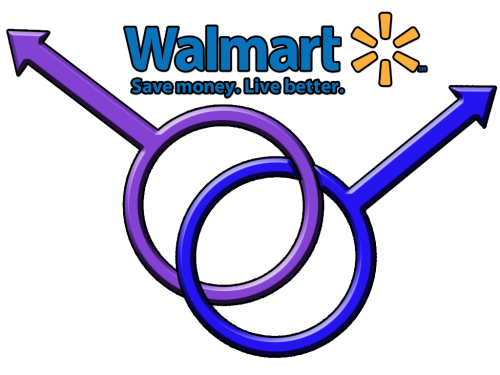Walmart Publicizes Vicissitude in Health-Care Policy
JANET GUAN
Staff Writer
Although same-sex couples have become widely accepted relationships, just a few years ago, homosexuality had a public stigma that allowed organizations to withhold benefits on the sole reason of sexual preference.
Currently, multiple companies and organizations have adjusted their policies to accommodate all potential employees. For instance, Walmart has recently stated it will offer health insurance benefits to its employees and their partners working in the U.S. and Puerto Rico, regardless of the partner’s gender, beginning in 2014.
Walmart addresses all statuses of homosexual couples by including couples that have not been married yet, since multiple states still do not allow same-sex marriage. There is a concerted effort not only in treating all workers equally, but also in giving them equal opportunity to contribute their talent to Walmart. By changing the policy to be more inclusive, Walmart equally motivates all workers to contribute their best efforts.
Workers are not defined by which gender they are attracted to; workers are perceived by how productively they work. Sexual preference plays no role in determining talent or marketing skills. Multiple companies may unintentionally exclude certain groups from receiving the same benefits like the rest of employees. Inadvertently excluding employees with great potential on the basis of sexuality is not smart in today’s competitive economy, nor is it ethical.
Though equality is also valued, Walmart’s main goal is to thrive in the business world. Since 53 percent of the US population believes same-sex marriage should be legal, Walmart may just be using the new policy to boost their image and attract more revenue. Adjusting the health-care policy to be more inclusive seems like a way for Walmart to make a political stance on the equality issue. After all, company revenues partially depend on how positively customers view the company, in addition to the quality of the product the company is selling. For example, despite having an anti-gay stance, Chick-Fil-A continues to thrive. Though the public statement caused many to view Chick-Fil-A negatively, customers continue to purchase their product because of the quality and possibly for the publicity Chick-Fil-A received from the situation. Multiple companies, including Walmart, could use the publicity from taking a stance on the equality issue to attract more customers.
Using a popular human rights issue to attract attention to the company may be a successful tactic, but ethically, it is incorrect. Manipulating a customer’s passionate opinion on a severe issue to increase sales means that the company is taking advantage of the customer’s passion and increasing their own revenue with no benefit for the customer. Purchasing items from Walmart will not help combat aversion to same-sex couples.
Though Walmart may not have intentionally publicized the change to their health-care policy, the response to the change states otherwise.
